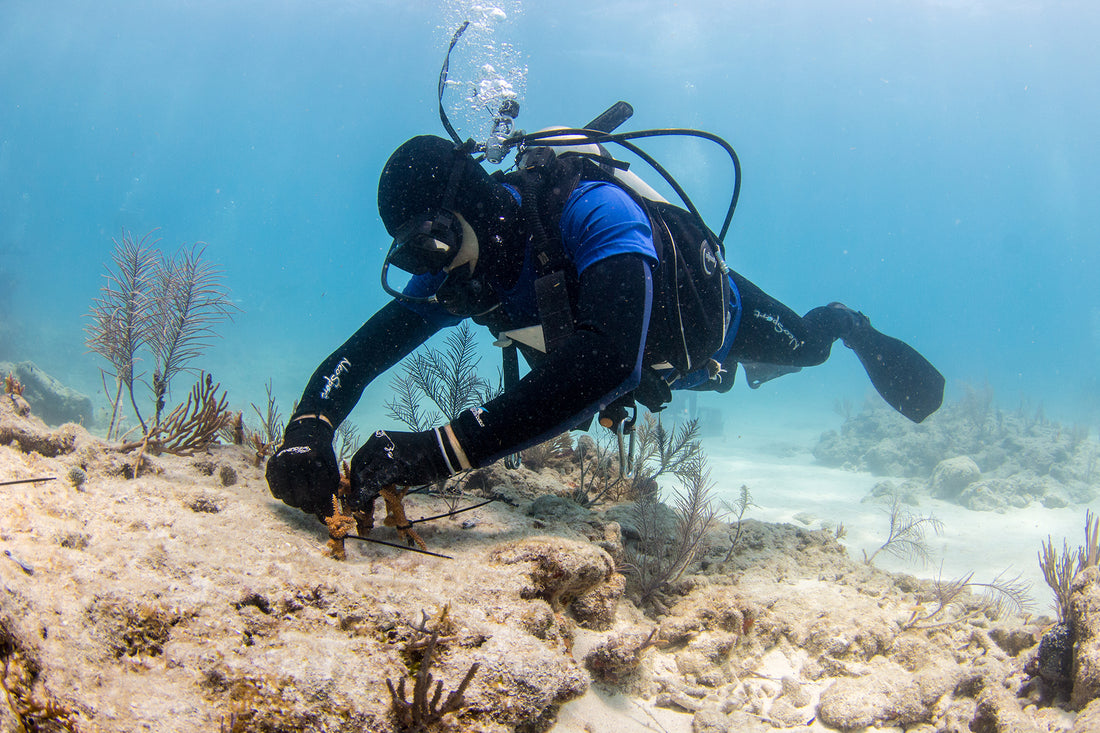
How Resilient Reefs Can Build a More Resilient Future
Share
In 2020, the whole world experienced constant change, and we’ve all had to adapt, shift, and evolve as individuals and organizations. Along the way, as surprising difficulties came our way, we learned resilience. At Enzymedica, we’re building a legacy and making the world a better place, by supporting the resilience of People & Planet through our philanthropic initiatives. One key part of that legacy is our partnership with Mote Marine Laboratory & Aquarium.
The scientists at Mote Marine Laboratory & Aquarium have spent years researching the grand challenges facing our oceans to ensure the sustainable use of our marine resources for years to come. Resilience is front and center in their strategy to bring back one of the most important and beautiful ecosystems on the planet, Florida’s Coral Reef.
What threats do corals face?

Coral reefs provide shoreline resilience, protect coastal communities and create vibrant, healthy oceans. In our state of Florida alone, over 70,000 jobs are dependent on Florida’s Coral Reef, contributing over an estimated $8 billion to the Florida economy. Worldwide, coral reefs are essential to the biodiversity of the ocean; it is estimated that while they cover less than 1% of the ocean floor, they support 25% of all marine life. Our oceans produce more than 70% of the world’s oxygen, and coral reefs contribute to that vital supply. That’s why they’re nicknamed “rainforests of the sea.”
Overfishing, coastal development, disease outbreaks and stressors related to global climate change such as increasing water temperature and ocean acidification have damaged or decimated reefs around the world. Living coral cover in Florida has declined by over 90%; in some areas, that has all happened in just the last several decades.
In the last half-century, corals have also faced numerous severe disease epidemics, targeting different species with outbreaks of varying levels of severity. Along Florida’s Coral Reef, outbreaks several decades ago left staghorn, now considered threatened under the Endangered Species Act, and other branching corals reeling. The current outbreak of stony coral tissue loss disease is spreading rapidly through many reef-building species.
Resilience for the future

Despite the severity of the situation, there is hope for the world’s coral reefs, thanks to Mote Marine Laboratory & Aquarium’s coral reef restoration and research efforts. They grow small coral fragments on land and in the water, which are then replanted on the reef. Here at Enzymedica, we support their efforts by donating $1 from each bottle of our Aqua Biome line we sell worldwide.
Beyond growing and planting thousands of coral fragments every year, a key part of Mote’s restoration strategy focuses on incorporating coral resiliency into their efforts.

In any living organism, variations in genetics can lead to different traits, and some of those traits might be better suited to a changing environment. Mote scientists look at the natural resilience of various coral genotypes, to see how they respond to three major threats: disease, increased water temperatures and ocean acidification. The genotypes that do best against these threats -- or the ones that show resilience -- are added to the “restoration pipeline,” where the process of scaling up the number of fragments of that genotype can begin.
Restoring resilient corals is a proven and paramount strategy. By determining the resistance and susceptibility of different genetic strains of coral, Mote researchers can inform innovative technologies for coral restoration. That means the coral that is restored today can last 100 years and beyond, despite an increasingly warm and acidic ocean.
Since 2008, Mote scientists have planted more than 100,000 coral fragments of several native coral species from more than 325 genotypes to restore depleted reefs. In summer 2020, they reported two major breakthroughs, including natural sexual reproduction for two types of restored corals. First, their restored massive corals spawned, so it can successfully produce new generations of corals. Second, their restored branching corals became capable of spawning as well. These discoveries represent resilience in action - and breakthroughs in Mote’s efforts to restore coral reefs to self-sustaining life.
Learn more about Mote’s coral reef restoration efforts in the Florida Keys, and their marine research around the world, at mote.org/coralrestoration. Get to know Enzymedica’s Aqua Biome line and how every bottle purchased helps restore Florida’s Coral Reef by visiting aqua-biome.com.

